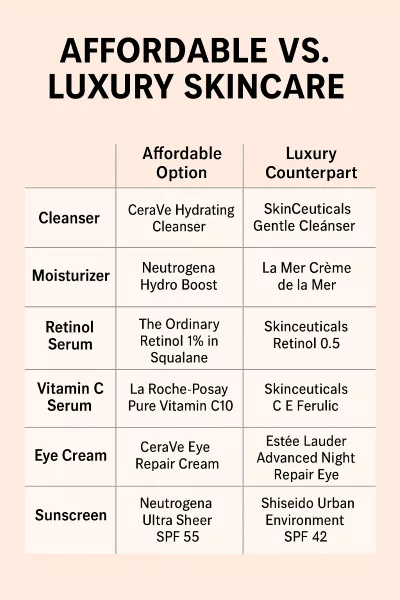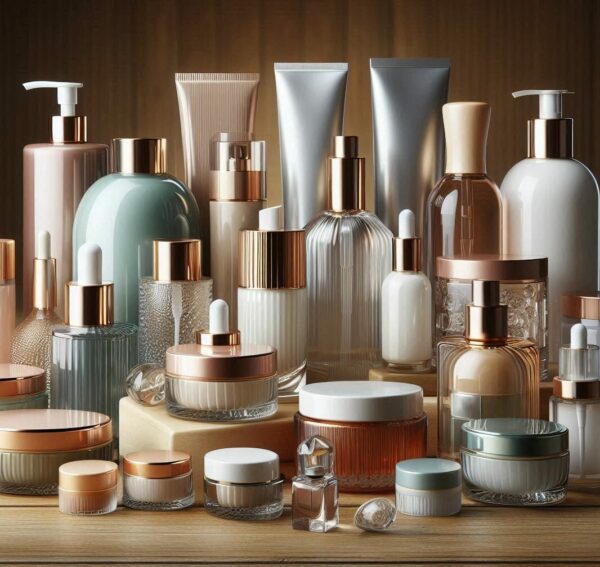Expensive vs. Affordable Options
When it comes to anti-aging skincare, one of the biggest questions many of us ask is: Do anti-aging products actually work? With so many creams, serums, and treatments on the market—ranging from drugstore bargains to luxury splurges—it can be hard to know what’s worth your time (and money).
The Science Behind Anti-Aging Products
Anti-aging products can be effective, but the results depend on a few key factors:
- Ingredients: The most effective anti-aging ingredients are backed by science—retinol, peptides, vitamin C, hyaluronic acid, and sunscreen are the heavy hitters. Products containing these can help reduce fine lines, improve skin texture, and boost hydration.
- Consistency: Skincare is a long game. No cream or serum will transform your skin overnight. Visible results usually take weeks or months of consistent use.
- Lifestyle: Even the best product can’t undo sun damage, smoking, or lack of sleep. A healthy lifestyle amplifies the effectiveness of your skincare routine.
Expensive vs. Affordable Anti-Aging Products
It’s easy to assume that a $300 luxury cream will work better than a $30 drugstore moisturizer—but that isn’t always the case. There are other factors that influence the price. Expensive or luxury products are pricey because of elegant packaging and luxurious textures, marketing, proprietary ingredients, concentration of actives, and ingredient quality. However, a high price tag doesn’t always mean more effective results. Many luxury products use the same active ingredients you’ll find in more affordable options. Lets take a look at each of these factors.
Affordable Products
For years, drugstore skincare had the reputation of being “basic” or “less effective” than luxury options—but today, that’s far from the truth. Drugstore and mid-range brands have come a long way in recent years. Many affordable brands have stepped up their game, offering dermatologist-approved, science-backed formulas that rival high-end products at just a fraction of the price. They often contain the same proven actives—like retinol, niacinamide, and peptides—at a fraction of the cost. The trade-off may be less fancy packaging or fewer “extras,” but the core skin benefits can be just as good.
So, Which Should You Choose?

The truth is, effective anti-aging doesn’t have to break the bank. When choosing a product:
- Look at ingredients, not just branding. A $20 serum with retinol may be just as effective as a $200 one.
- Dermatologist-Developed Formulas. Many budget-friendly products are designed with dermatologists, ensuring their formulations are both effective and safe for sensitive or mature skin.
- Great for Sensitive Skin. Many inexpensive products avoid heavy fragrance and unnecessary additives that can trigger irritation. They’re often designed to be gentle, making them excellent options for those with reactive or mature skin.
- Invest where it matters. Sunscreen and proven active treatments (like retinol or vitamin C) are worth prioritizing.
- Save on basics. Gentle cleansers and simple moisturizers don’t need to be expensive.
Final Thoughts
Yes, anti-aging products can work—but results depend more on the right ingredients and consistent use than on the price tag. Splurging on luxury skincare can feel indulgent, but affordable products often deliver the same science-backed benefits. The best routine is one you enjoy, can afford, and will stick to over time. Consistency matters more than cost.
✨ Aging is a privilege—but glowing, healthy skin at any age is totally achievable.

